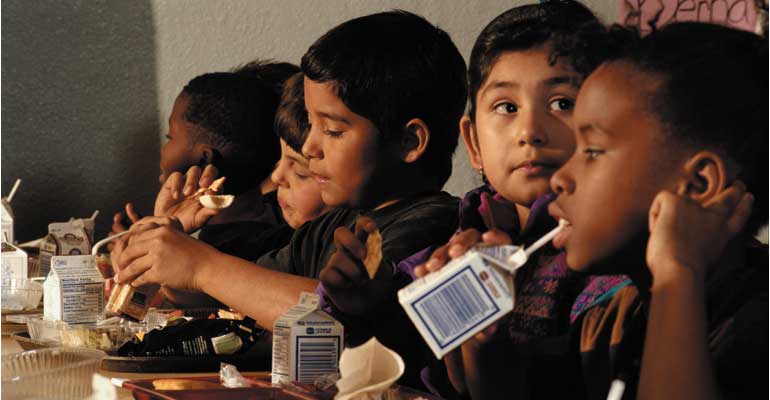Children who have spent years waiting for a family, whether in foster care in this country or in an orphanage abroad, are almost certain to have developed issues around food that they’ll bring to their new home.
As a recent parent of a child who waited for a permanent family, you may notice that because of these food issues, you’ve begun to absolutely dread mealtimes. Whereas, before adopting, you used to love planning and serving nice family meals, now meals have suddenly been transformed into pitched battles.
What’s the Problem with Food?
To understand what is happening, you need to go back, far back. All of us have a personal relationship with food, one that is imprinted in early infancy when our loving parent responded quickly to our cries. The infant, held, snuggled, and fed, learned an important lesson: “I felt bad and now I feel good. This world is a pretty OK place.” This is referred to as the “cycle of need” and every time the cycle is successfully completed, the child learns trust.
Sadly, with kids from foster care or an orphanage, this lovely scenario probably didn’t happen often. Maybe the caretakers in the institution propped bottles leaving the babies to suckle on their own. Maybe the birth mother was too young or distracted to focus on feeding her baby.
Maybe the baby cried a long time before anyone came and the person who finally came was annoyed, abrupt, rough. Maybe no one came. The baby, as a result, learned a very different lesson: “They don’t meet my needs. I can’t trust them. I have to depend on myself.”
For older children, perhaps there were times in the orphanage when food wasn’t provided regularly. Maybe when it was, younger children learned quickly that if they hesitated for a moment, older kids would take it. Maybe in an American family, junk food was all there was and even that appeared when Mom remembered, not when the child was hungry.
Food, trust, and a sense of well being are intertwined for all of us. Parents who embrace a new child by adoption want to repair past pain; preparing and serving food is one way of showing how much we care. So it hurts and even infuriates us when that new child rejects our efforts (“I hate that! Yuk!”), abuses our efforts (gorging, endlessly asking for more when you know he can’t possibly still be hungry), or sabotages family mealtime (being truly obnoxious at the table). Some parents take this behavior as a personal insult and go so far as to banish the child to another room or time for meals. This is a lost opportunity.
Food for Thought
Your child is not doing this to you. It is all about old habits, old experiences. Your child may not have conscious memories of the past but he does have a sensory memory of those feelings. And feelings are powerful and take a long time to change, especially in children who learned past lessons — in order to survive. Lots of time and lots of available food, offered with love, unconnected in any way to a child’s behavior, offered day after day after day, is required to change a child’s cycle of need and to build trust.
Here are things you can do during that adjustment process:
• Keep in mind that your job is only to provide wholesome, nurturing, well-balanced meals. Don’t get into a power struggle over whether that food is eaten.
• Your job is not to force your child to eat — to eat or not is your child’s decision.
• You can control choices. (“I’m sorry you don’t like the lunch I fixed. You liked this last week. We’ll see you at dinnertime.”)
• You can provide a snack bowl (grapes, raisins, and other healthy food) at your child’s bedside for assurance at night. (Maybe in the past there was a real possibility that there would be no food when morning came.)
• During the day or while you make dinner you can have the same nutritious snacks on hand for the insistent child or the toddler who becomes hysterical if her food is not ready NOW.
• You do not have to share a meal with someone who cannot behave at the table. (“Oops, looks to me like you are finished. You are excused. We’ll see you at lunch.”)
• Don’t use food as a reward or as a punishment. Don’t limit food until your child realizes that food will always be available.
• Understand that some children confuse emotional emptiness with physical hunger (Ashley, age 10, when told she was moving from one family to another said, “Oh, ok. When’s lunch?”).
• Above all, do your best not to take it personally or to react emotionally! Look upon each meal as a chance to complete that cycle of need and replace old lessons with new ones. With lots of love and lots of available, healthy food, your child will gradually begin to trust that his needs will be met.



